Programme for Active Learning (PAL)

The Programme for Active Learning or PAL is an integral part of the curriculum for Primary 1 and 2 pupils. PAL offers learning experiences that are active, hands-on and meaningful. PAL contributes to the development of soft skills in our pupils such as the ability to communicate clearly and cooperate with others. The programme encourages pupils to have a lively curiosity about the world they live in and a belief in their ability to accomplish a task or deal with a challenge.
PAL@SV - An Overview
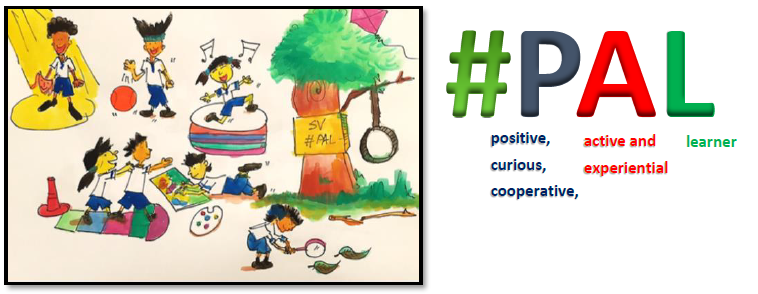
Objectives of PAL@SV
PAL@SV aims for pupils to:
a) Acquire the necessary social and emotional competencies
The skills taught in PAL will help our young Southviens to better understand themselves as it helps build our pupils’ emotional literacy as they are able to express clearly how they feel. Our lessons expose our young Southviens to different scenarios in which they will learn how to manage their emotions and resolve conflicts.
b) Facilitate holistic and well-rounded development
The aim of PAL integrated into our curriculum is to provide a more balanced curriculum that facilitates well-rounded development of our pupils. This is in line with the school’s mission, “Inspiring minds, Moulding Character” where we offer a balance between the academic and non-academic areas in the school.
c) PAL broadens the learning experiences of our children
The lessons aim to open up our pupils’ access to decision making and positively influences their future experiences. When Southviens are presented with challenges in their life, pupils will be able to make good decisions and have the skills to manage their emotions and be able to act appropriately.
Overview of Lessons
Here @South View, primary 1 and 2 pupils will go through 2 hours per week of PAL lessons from Term 2 to Term 4. PAL provides a broad exposure of experiences to our pupils in the 4 domains: Sport & Games, Outdoor Education, Performing Arts and Visual Arts.
a) Primary 1
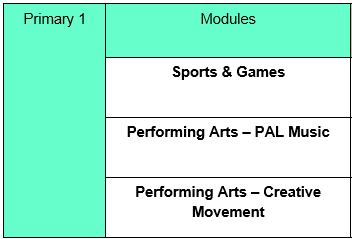
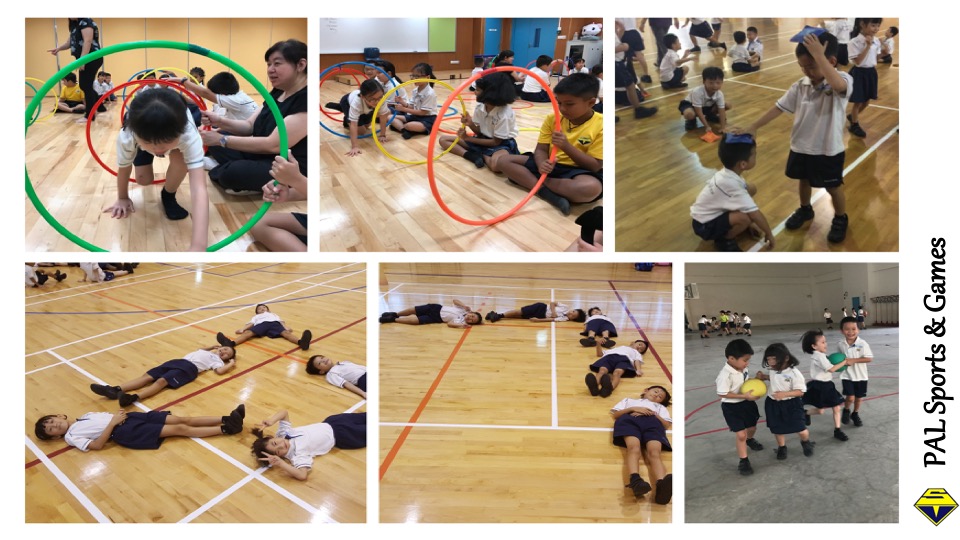
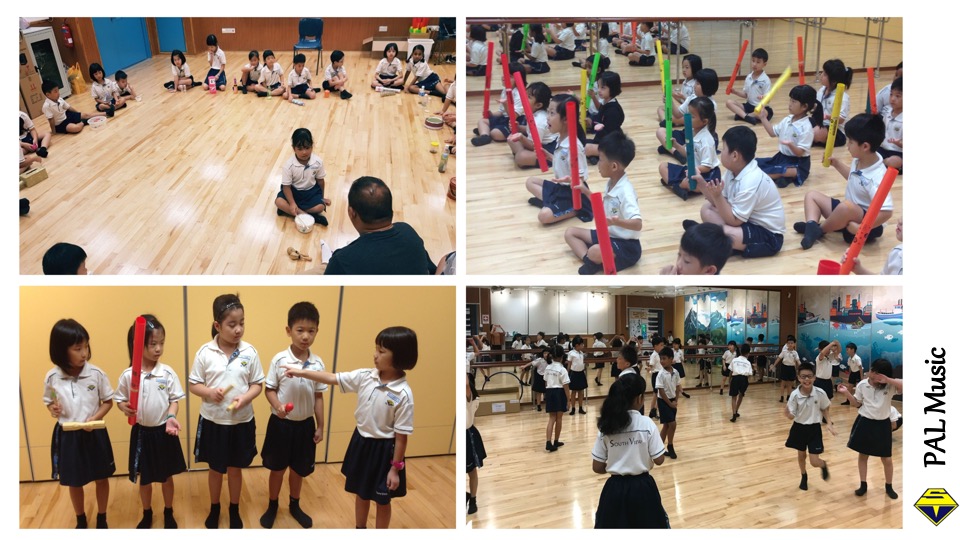
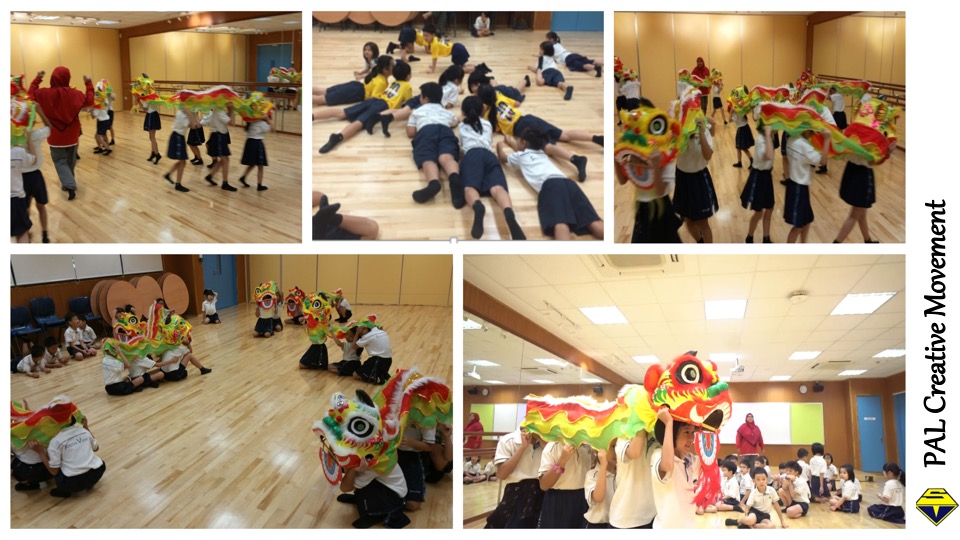
a) Primary 2
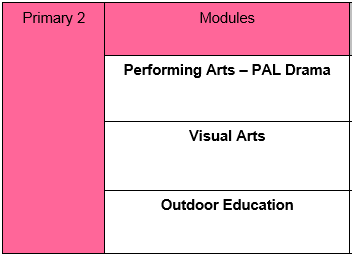
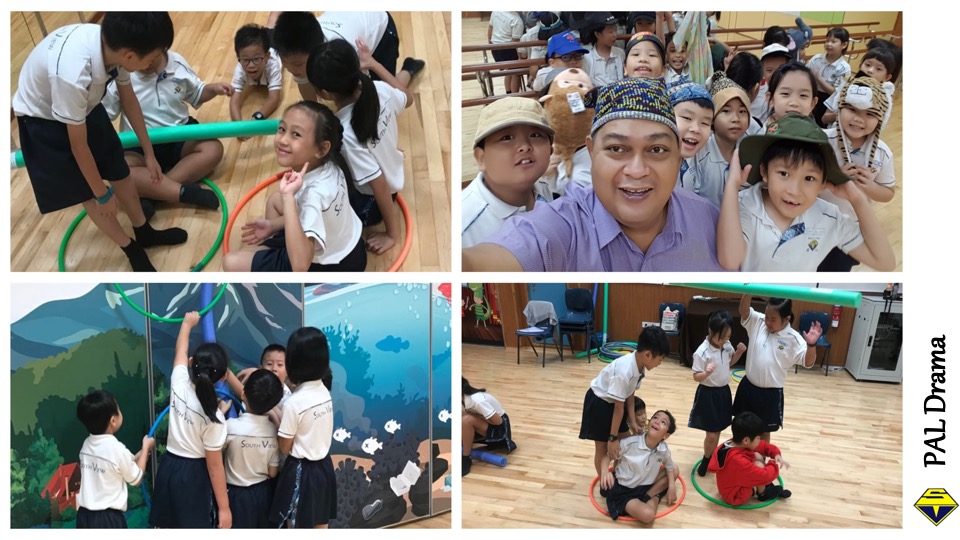
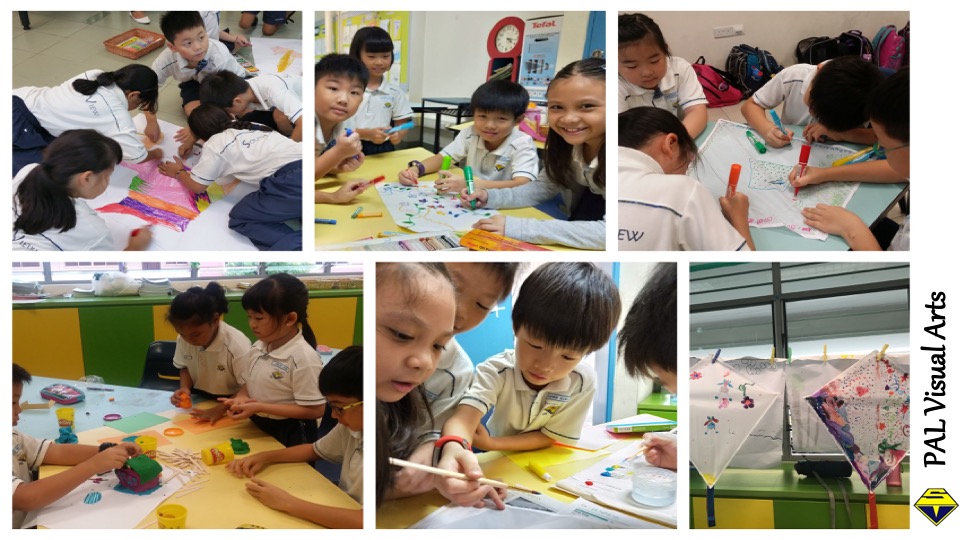
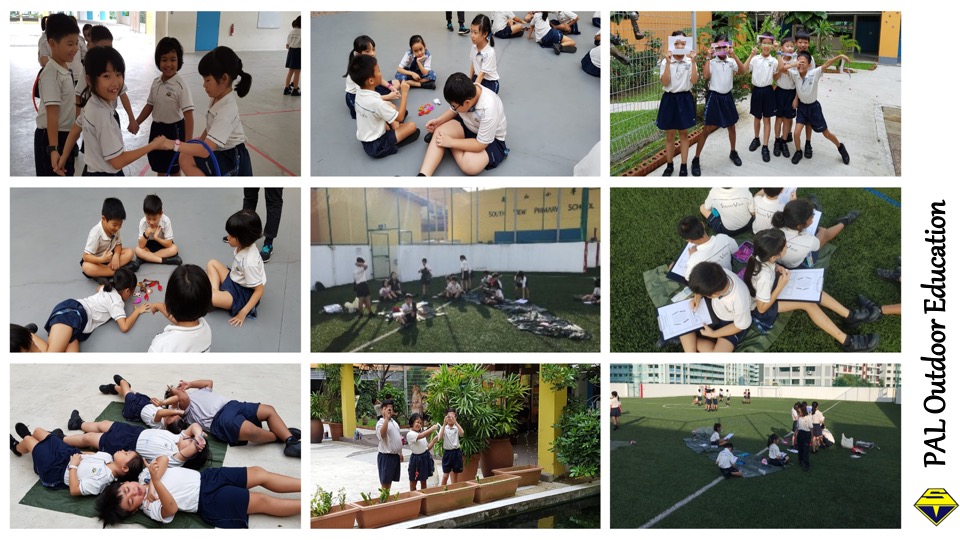
Learning Outcomes
The design and delivery of PAL modules aim to achieve the following learning outcomes which provide the purpose for learning through PAL:
• Exhibit confidence in what they do and express themselves effectively
• Exhibit curiosity and positive attitudes to learn
• Enjoy group experiences and teamwork
The tables below are the SEL and SEC taught during each SV PAL lesson.
Primary 1
|
Lesson No. |
Social Emotional Learning |
Social Emotional Competencies |
Specific Skills |
|
1 |
Self- Awareness |
Identifying and recognising emotions |
We are learning to know our strengths and weaknesses.
|
|
2 |
Self- Awareness |
Identifying and recognising emotions |
We are learning to identify the different types of emotions and to manage our emotions.
Positive: happy, excitement Negative: anger, sadness, jealousy
|
|
3 |
Self-Management |
Impulse Control and Stress Management |
We are learning to realise that our decision and actions will affect ourselves and others.
|
|
4 |
Social Awareness |
Respect for others |
We are learning to listen actively when someone is talking. We are learning to speak only when it is our turn to do so.
|
|
5 |
Relationship Management |
Communication, social engagement and building |
We are learning to take turns to speak or do an activity.
|
|
6 |
Relationship Management |
Working Cooperatively |
We are learning to work together to achieve a common goal.
|
|
7 |
Combination of all they have learnt from lesson 1-6. |
Reflection |
We are learning to apply what we have learnt.
|
Primary 2
|
Lesson no. |
Social Emotional Learning |
Social Emotional Competencies |
Specific Skills |
|
1 |
Self-Awareness |
Identifying and recognising emotions |
We are learning to know our strengths and weaknesses.
|
|
2 |
Self-Awareness |
Identifying and recognising emotions |
We are learning to identify the different types of emotions and to manage our emotions.
Positive: happy, excitement Negative: anger, sadness, jealousy
|
|
3 |
Social Awareness |
Appreciating Diversity |
We are learning to realise and respect that everybody is different and unique.
|
|
4 |
Self-Management
|
Impulse Control and Stress Management |
We are learning to realise that our decision and actions will affect ourselves and others.
|
|
5 |
Relationship Management |
Working Cooperatively |
We are learning to work together to achieve a common goal.
|
|
6 |
Relationship Management |
Negotiation, refusal and conflict management |
We are learning to handle disagreements.
|
|
7 |
Combination of all they have learnt from lesson 1-6. |
Reflection |
We are learning to apply what we have learnt.
|
For more details, click here to access the PAL information slides.

